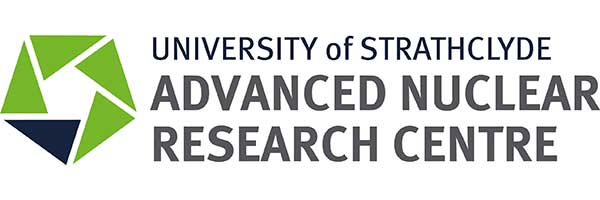
Strathclyde's expertsSpotlight on: Blair Brown
The Advanced Nuclear Research Centre (ANRC), as a 'Hub for Nuclear Research' at the University of Strathclyde, works with colleagues from various disciplines:
Blair Brown, Knowledge Exchange Fellow, ANRC and University of Strathclyde
Blair’s main focus within the ANRC is to support the translation of both ANRC-commissioned research and also knowledge that exists in academia more generally. Ultimately, this ensures fundamental research and concepts become available, are deployed and derive value for the industry partners, society and the economy. Blair also sits on the ANRC’s Shadow Board, where ANRC business is reviewed independently from the main ANRC stakeholders. Additionally, Blair supervisors a number of PhD students both associated with the ANRC and more widely across the university, and also works directly on research projects such as:
- Investigating effective transfer and re-use of data science techniques across different assets and organizations
- Developing and deploying data science forecasting techniques (e.g. to predicting reactor temperatures and transformer insulation gas escape rates).
- A multi-million-pound data science education and upskilling programme for manufacturing engineers (including nuclear) in collaboration with the National Manufacturing Institute for Scotland
Also, for the past 6 years, Blair has been managing the ANRC’s EPSRC Prosperity Partnership Programme, a joint effort between academia and industry, conducting both fundamental research and translation activities associated with advancing the through-life asset management of nuclear assets.
Blair shared his thoughts on the challenges and opportunities in nuclear research and his area of expertise.

Challenges and opportunities in nuclear over the next few years
Nuclear generation, in the context of net zero, has a fundamental role to play. Either by supplying base load generation at scale or more load following orientated generation in the form of SMRs and AMRs. This second approach is important as more highly penetrating renewable and green energy sources come online in future diverse multi-vector energy systems. This is a challenge as nuclear must engage and integrate at the network level with these likely future energy systems, in order to retain its relevance to an associated net-zero solution.
In parallel to the technology challenges there are issues related to societal public acceptance of nuclear, alongside the political and financial challenges of how the nuclear industry are actually going to implement nuclear solutions in the longer term. Many of these issues remain open questions. The nuclear industry has to make its case to the public, and gaining public acceptance of nuclear technology and its role in achieving net zero will be absolutely crucial. Politically, there needs to be long-term cross-party agreement on a sustained nuclear build programme and financially there needs to be a mechanism to maintain the required funding.
A final challenge is the need for a consolidated solution to nuclear end-of-life issues. We’re moving in the right direction here but there’s still scope to do more. From the perspective of my own work in AI, data science and digitalisation, I feel there’s still more we could be doing and better ways we could be addressing this issue.
The Future
“Data, digitalisation and AI can support the transition to a low carbon, increasingly resilient, and more sustainable future.”
Better collation, interrogation, processing and use of both new and historic data can permit us to understand assets and processes better. We can then use this understanding to gain deeper insights into how to optimise assets across their full life-cycle; all the way from streamlined data-driven design of the next generation of assets, to proactive prognostic and health management of the same assets when they are in operation.
However, to achieve this, there is a need for a multidisciplinary and systems engineering approach, that integrates these new technologies with the workstreams and safety-focused principles that are already very well defined and understood in the nuclear industry. We need to work together, academia, industry and government, to realise more of this value. This will be an enabler that moves us towards a sustainable net-zero society.
What do you see as the benefits of a coordinated nuclear sector effort across Strathclyde and other universities?
Modern complex problems require well-managed complex solutions, involving people from different disciplines, such as: researchers, engineers, lawyers, psychologists, policy experts and financers, who need to work together in a coordinated fashion and with a common goal. The ANRC is working in partnership with the wider nuclear industry to address some of the larger challenges of sustainability, resilience, and net zero. Understanding the challenges each stakeholder is facing removes isolated thinking and the network the ANRC provides is key. At a high level, the ANRC adds additional value by acting as a focal point to consolidate and provide a means for reaching across and between the multiple disciplines and industry sectors, so everyone can converse to make the most of the opportunities that arise and solve some of those bigger problems that are coming over the horizon.
